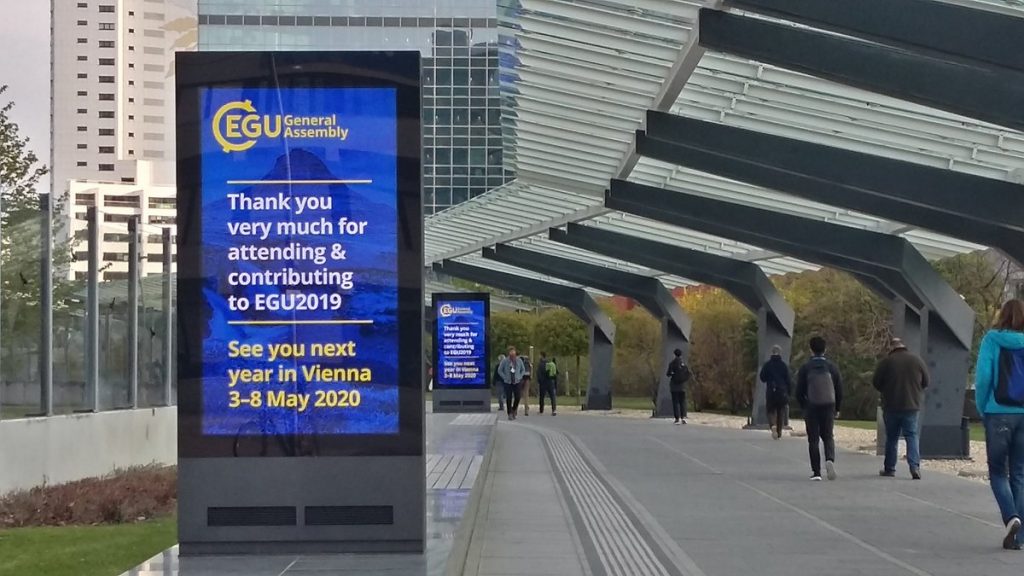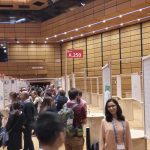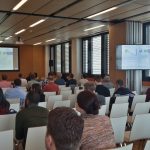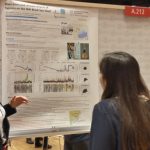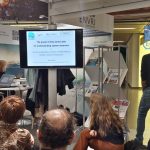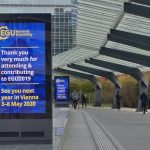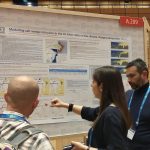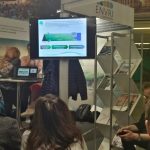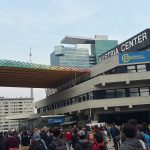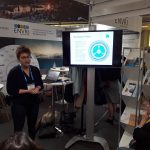Based on the success of last year, the session “Integrative Studies of the River-Sea Continuum” has been continued at the General Assembly of the European Geosciences Union (EGU) from April 7 to 12, 2019 in Vienna. Several scientists associated with DANUBIUS-RI contributed to the set-up of this session last year. According to convener Jana Friedrich, the session aims to bring together the freshwater, coastal and marine community, thus clearly embracing the DANUBIUS-RI vision.
On April 8, about 35 scientists from all over the world joined the session to listen and discuss to the results presented in seven talks. The talks ranged from presenting the state-of-the-art of DANUBIUS-RI’s Science & Innovation Agenda, over assessing the effects of different human activities in the Mekong, Danube, Elbe and Scheldt, to engaging citizens in the Danube delta to validate hydrodynamic models. For example, van der Vegt et al. linked anthropogenic activities to salt intrusion in the Mekong delta, Pein et al. showed the effects of climate change and other human impacts in the Elbe estuary, Trauner et al. presented drivers, pressures and states for migratory fish the Danube, and van Dijk et al. assessed the effects of dredging and disposal activities in the Scheldt estuary.
Afterwards 10 posters associated with the session were presented in a big hall, where interested scientists could chat with one of the authors of the individual posters. For example Friedrich et al. showed how river-borne and climate drivers are influencing hypoxia in the NW Black Sea, Maicu et al. presented how salt intrusion may change in the Po river delta in the future due to climate change, and Mathre et al. outlined how citizens measured water depth and velocity in the Danube delta to validate associated hydrodynamic models. You can view the full session description as well as the list of talks and posters, which have been presented in the session here.
DANUBIUS-RI was also represented at the environmental research infrastructures (ENVRI) community booth e.g. during the lunch talks introducing the research infrastructures, and explaining how their data and services help to respond to grand challenges. On April 9, Debora Bellafiore highlighted the areas DANUBIUS-RI can contribute to better understand and adapt to effects of climate change and extreme events in River-Sea Systems. On April 11, Sina Bold presented DANUBIUS-RI guided by the Science & Innovation Agenda, and Jana Friedrich showed why we need both short-term and long-term observations to untangle effects from climate change and other human pressures in River-Sea Systems.
Thanks to the scientists, who presented orals and posters, as well as to the science community for their interest, questions and comments during this session. We are looking forward to the General Assembly of the EGU in 2020, as well as to many interesting contributions and respective discussions in the session “Integrative Studies of the River-Sea Continuum”.
Your Session Conveners:
Jana Friedrich (HZG, Germany), Debora Bellafiore (ISMAR-CNR, Italy), Andrea D’Alpaos (University of Padova, Italy), Panagiotis Michalopoulos (HCMR, Greece) & David Todd (HR Wallingford, UK)

